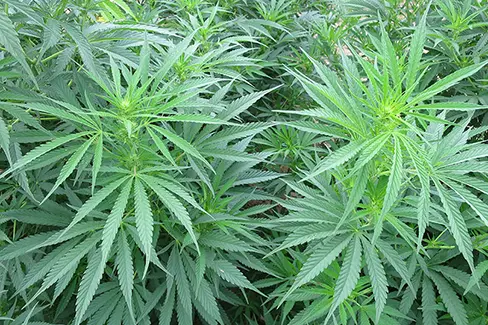Possession of even a tiny amount of marijuana is illegal in Georgia. But over half of Georgians believe recreational marijuana should be legal. A much higher percentage, almost 90 percent, believe medical marijuana should be legal. So, even though marijuana possession is illegal, these cases are now difficult for prosecutors to prove in court. They basically have double duty. They must convince jurors that the defendant illegally possessed marijuana, and they must convince them that POM (possession of marijuana) is wrong.

We know what you’re thinking. Jurors swear an oath to follow the law, and in most cases, they take that oath very seriously. Jury sympathy comes into play. If jurors believe the defendant is a good guy, the law is unjust, or the police railroaded the defendant, they’ll look for ways to exonerate the defendant.
Juror attitudes affect prosecutor attitudes. Since odds at trial are now longs, both in terms of conviction and sentencing, a Marietta criminal defense lawyer usually negotiates from a position of strength during plea bargaining sessions. That’s especially true if lawyers do their homework and approach pretrial negotiations with the same vigor that they approach trials with. On top of these things, POM is a nonviolent offense. Therefore, a full range of options are available, including deferred disposition and pretrial diversion, which prevent a conviction from staining the defendant’s permanent record.
Produce the Substance in Court
The state must physically present the substance in court. The officer’s testimony that the defendant had marijuana isn’t enough. POM cases usually fit one of the following three profiles.
Vehicle Stops
At this point, the legal challenge has nothing to do with the substance itself. All that matters is the process that police officers used, or didn’t use, to obtain that substance.
Reasonable suspicion is the official standard of evidence in these cases. The reasonableness usually has nothing to do with drug possession. Instead, that reasonableness is typically a traffic violation. Suspicion comes into play when the driver acts, well, suspiciously.
Significantly, the standard of evidence isn’t suspicious reasonableness, which isn’t even a thing. Officers cannot look for evidence to justify their suspicions. That’s why a Marietta criminal defense lawyer usually asks officers why defendants initially drew their attention. Some officers walk into the suspicious reasonableness trap.
House Party
Parties almost always involve drug use. Usually, that drug is legal, like alcohol. Sometimes, that drug is illegal, like marijuana. If officers find an illegal drug at a house party, they often make multiple arrests. These arrests often don’t hold up in court. More on that below.
The source of the tip and the nature of police officer intervention are critical. 9-1-1 anonymous tips are fairly reliable. Nosy neighbor tips usually aren’t reliable, especially if the nosy neighbor bypassed the 9-1-1 system. When they arrive, if the tipster complained about outside noise, officers usually cannot go into the house. If they enter the dwelling, they certainly cannot poke around every nook and cranny, looking for contraband.
Street Stop
Occasionally, officers detain suspects on the street whom they suspect have recently been to a drug house or were involved in a drug deal.
The reasonable suspicion rule applies in these stops as well. Once again, officers must have an evidence-based hunch, not a hunch justified by evidence. They certainly must have more than just a hunch. Police officer detentions never hold up in court without at least some facts.
Proof of Illegality
Once again, there are normally two types of cases in this area. Sometimes, it’s very easy to prove the substance was illegal. Other times, it’s almost impossible.
Unscientific “field tests” do not hold up court. In 2019, sheriff’s deputies arrested the quarterback at nearby Georgia Southern University and charged him with cocaine possession. The arresting officer resigned when scientific tests revealed that the substance in question was bird poop. These incidents make the headlines because they are quite rare.
Technical, non-scientific questions sometimes arise as well. The controlled substances list is not set in stone. Legislative bodies often add or delete substances. Certain administrative bodies have this power as well. So, there is a chance that the substance was not technically illegal at the time of the arrest.
Marijuana is a special case. This substance, which is illegal, is physically indistinguishable from hemp, which is legal. They look, feel, and smell alike. A specific kind of scientific test is the only way to distinguish them, at least beyond a reasonable doubt. The state has the burden of proof, so it must perform this expensive test, or the charges will not hold up in court.
Establish Possession
The aforementioned cocaine/bird poop charges might have also involved possession issues. The substance was on the hood of Shai Werts’ car. In Georgia, motorists possess anything in the passenger compartment or trunk. The law says nothing about the hood.
Proximity is only one component of possession. The state must also establish knowledge and control. Mike might be in the passenger seat of a car. But unless he opens the glove compartment, he most likely does not know what’s in it. Furthermore, if the glove compartment is locked, he has no control over it.
The same issue applies in house party cases. If Mike was at a party, he could literally be sitting on a marijuana stash and not legally possess it, if he didn’t know it was there. If people in the living room were passing a joint and Mike was in the bedroom, he wasn’t close enough to possess it.
Drug possession cases are difficult to prove in court. For a free consultation with an experienced Marietta criminal defense lawyer, contact The Phillips Law Firm, LLC. We routinely handle matters in Cobb County and nearby jurisdictions.

